World leaders pledge climate co-operation despite rifts
A technical glitch caused an awkward moment for Prime Minister Scott Morrison as he delivered his speech at a White House climate summit.
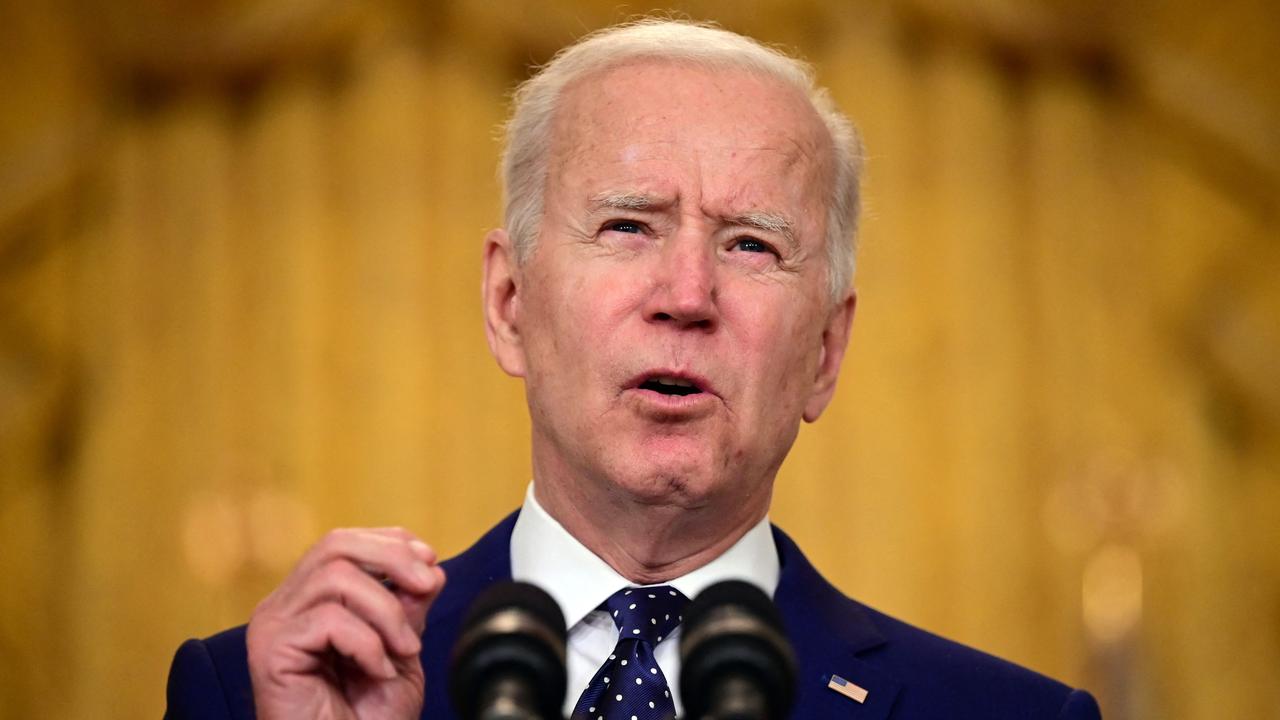
Prime Minister Scott Morrison suffered an awkward moment as he went to address world leaders at US President Joe Biden’s climate summit.
Mr Morrison, who appeared via video link, began to speak about Australia’s climate targets and achievements.
However, there was one problem: no one could hear him.
“Mr. Prime Minister, I’m not sure we’re hearing you here,” US Secretary of State Antony Blinken said.
Audio was finally established about a minute into Mr Morrisons speech, meaning many viewers did not hear his opening statements.
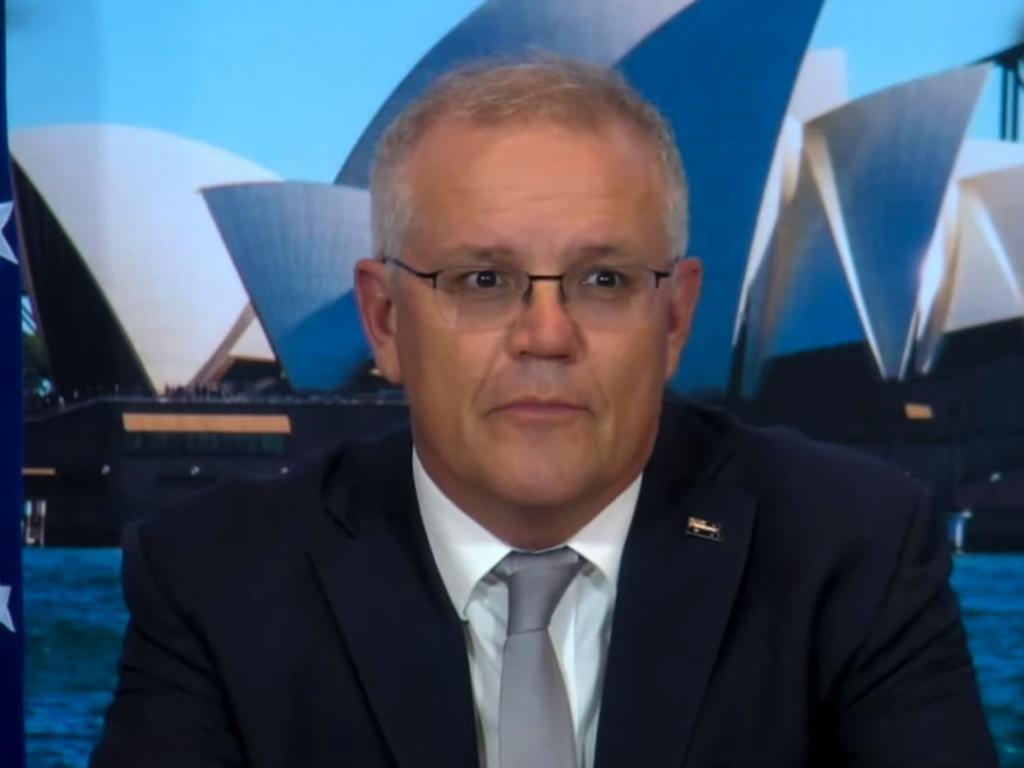
It came as the leaders of Russia and China put aside their raw-worded disputes with Mr Biden long enough to pledge international co-operation on cutting climate-wrecking coal and petroleum emissions in a livestreamed summit showcasing America’s return to the fight against global warming.
Neither Vladimir Putin nor Xi Jinping immediately followed the United States and some of its developed allies in making specific new pledges to reduce damaging fossil fuel pollution during the first day of the two-day US-hosted summit. But climate advocates hoped the high-profile — if glitch-ridden — virtual gathering would kickstart new action by major polluters, paving the way for a November UN meeting in Glasgow critical to drastically slowing climate change over the coming decade.
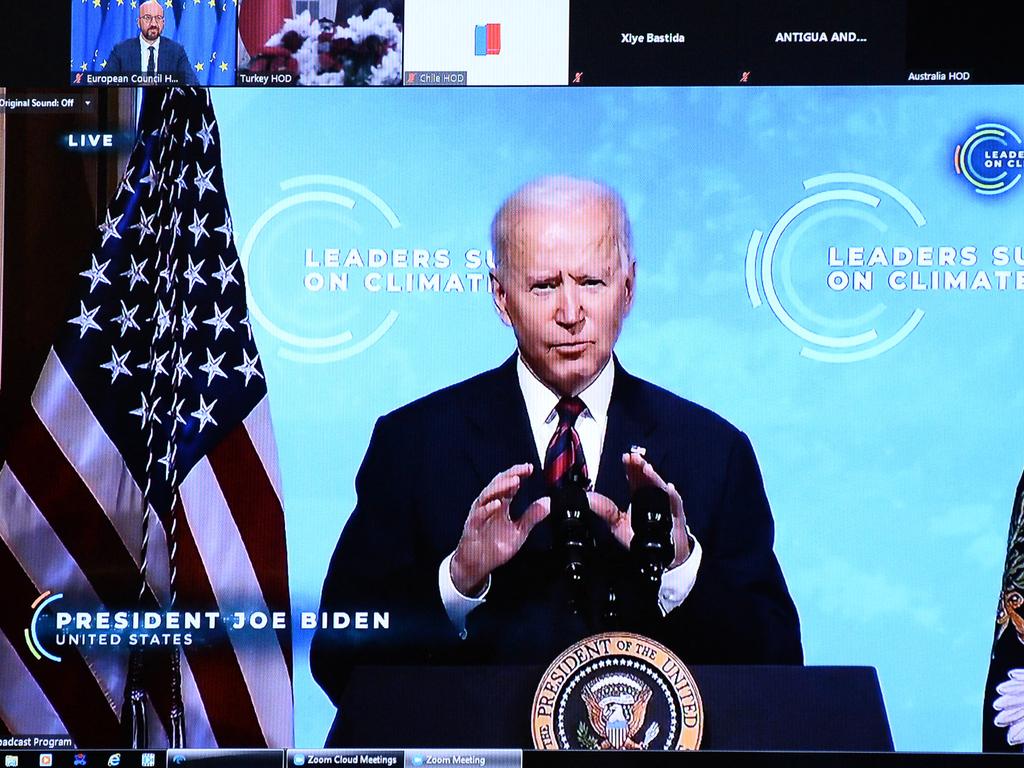
The entire world faces “a moment of peril” but also “a moment of opportunity,” Mr Biden declared, speaking from a TV-style chrome-blue set for the virtual summit of 40 world leaders. Participants appeared one after the other onscreen for what appeared to be a mix of live and recorded addresses.
“The signs are unmistakeable,” Mr Biden said. “The science is undeniable. The cost of inaction keeps mounting.”
Mr Biden’s new US commitment, timed to the summit, would cut America’s fossil fuel emissions as much as 52 per cent by 2030. It comes after four years of international withdrawal from the issue under President Donald Trump, who mocked the science of climate change and pulled the U.S. out of the landmark 2015 Paris climate accord.
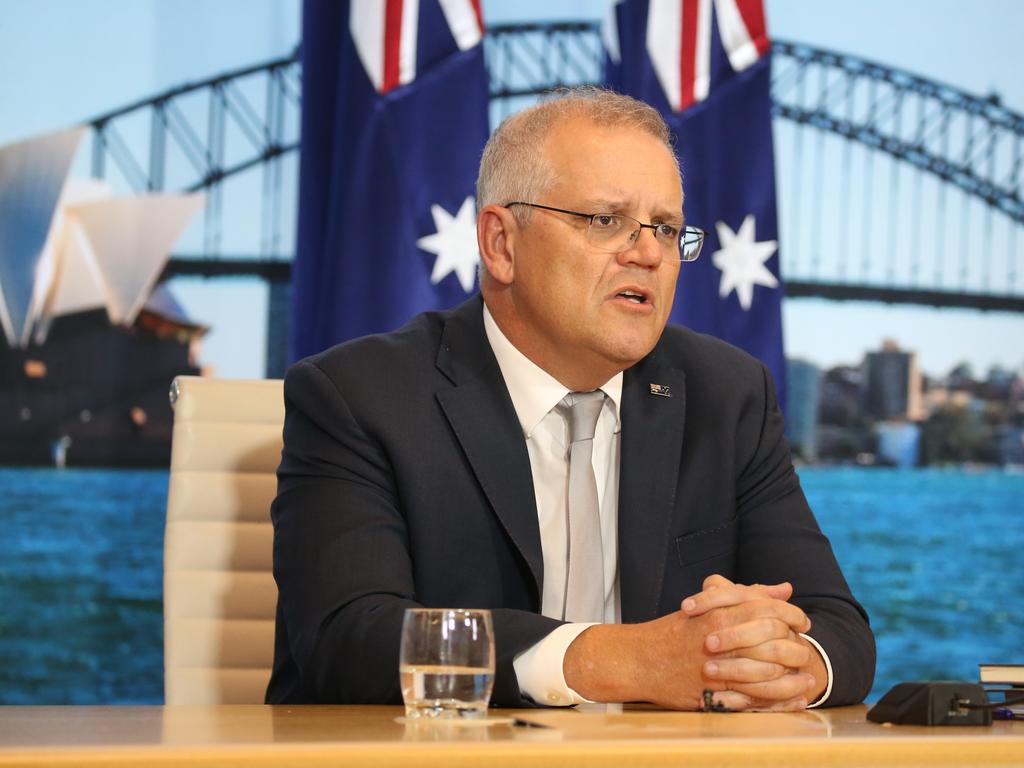
John Kerry, the former secretary of state who has become Mr Biden’s globetrotting climate envoy, said that with the new pledges, more than half the world’s economy has committed to action to keep the planet’s temperature within 1.5 degrees Celsius above pre-industrial times, the aspiration set in the Paris Agreement to avoid the most severe effects of climate change.
Japanese Prime Minister Yoshihide Suga, who discussed climate last week when he was Mr Biden’s first foreign guest, significantly raised the goals of the world’s second largest developed economy to cutting emissions by 46 per cent in 2030 compared with 2013.
Canadian Prime Minister Justin Trudeau, another early ally of Biden, boosted ambitions of his energy-exporting country to reductions of 40-45 per cent below 2005 levels, compared with an earlier target of 30 per cent.
“We must take action now. Because there’s no vaccine against a polluted planet,” Mr Trudeau said.
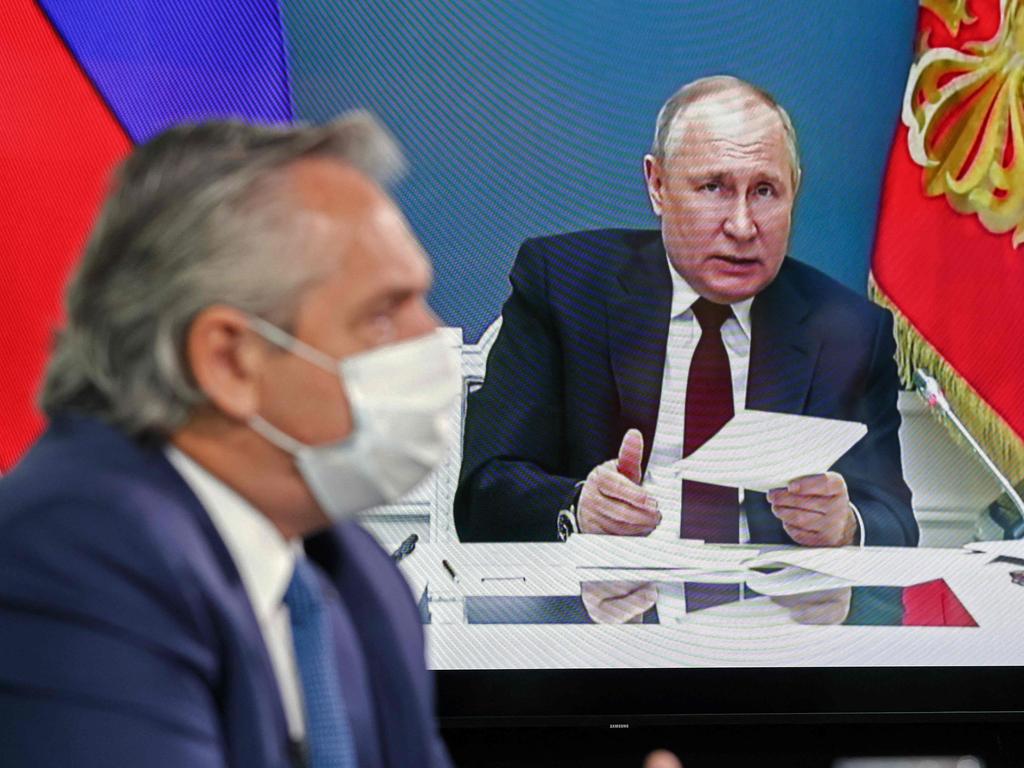
‘GAME-CHANGER’
The European Union this week confirmed its own ambitious goals and former bloc member Britain on the eve of Biden’s summit released the most far-reaching targets of any major economy with 78 per cent cuts from 1990 levels by 2035.
British Prime Minister Boris Johnson called Biden’s pledge “a game-changer” that will “have a transformative impact in the global fight against climate change.” Britain in November will host a UN conference in Glasgow that aims to upgrade the Paris Agreement.
UN Secretary General Antonio Guterres hailed the pledges made at the summit as a turning point but urged immediate action.
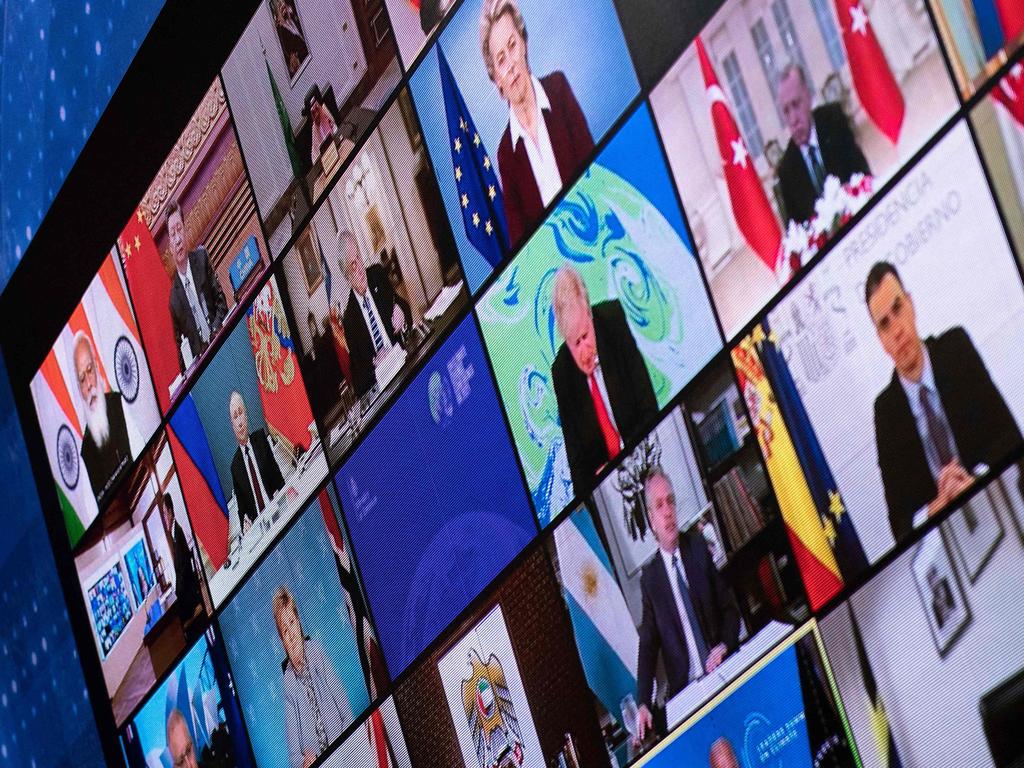
“Today’s summit shows the tide is turning for climate action, but there is still a long way to go,” Mr Guterres said in a statement.
Under the 2015 Paris accord, former president Barack Obama said the United States would cut emissions by 26 to 28 per cent by 2025 — a goal that Biden, his vice president, has now dramatically scaled up.
But Greta Thunberg, the emblematic 18-year-old climate champion, accused politicians of still ignoring the climate crisis as she pointed to continued subsidies for fossil fuels.
“How long do you honestly believe people in power like you will get away with it?” she told an Earth Day hearing in the US Congress by videolink.
In a smellier way of showing discontent, climate militants rolled pink wheelbarrows to the White House to dump cow manure as they described Biden’s plan with a choice epithet.
ONUS ON CHINA
The White House’s stately East Room was decked out with a patch of moss for the virtual summit, with Mr Biden, Kerry and much of the US leadership taking part virtually with counterparts.
In a brief glitch, Secretary of State Antony Blinken cut off a prerecorded video from French President Emmanuel Macron to hear from Russian President Vladimir Putin, who appeared to be impatient to make his live remarks.
Both Mr Putin and Chinese President Xi Jinping spoke of commitments to climate change, agreeing to participate despite high tensions with Mr Biden’s three-month-old administration.
Xi reiterated his pledge that China — by far the world’s largest emitter — would reach carbon neutral by 2060.
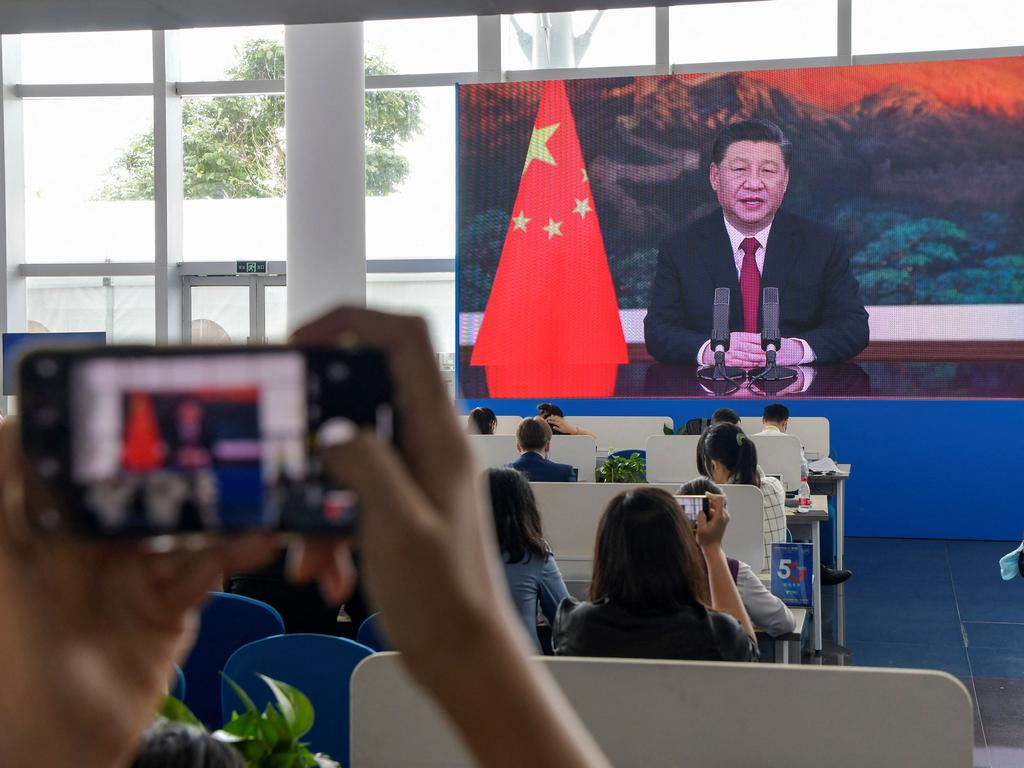
“China has committed to move from carbon peak to carbon neutrality in a much shorter time span than what might take many developed countries, and that requires extraordinarily hard efforts from China,” Xi said.
He said China would “strictly control” coal-powered plants.
But environmentalists have voiced alarm at the lack of immediate action to curb coal, which is the dirtiest form of energy but politically sensitive due to mining jobs.
Faced with opposition from Trump’s Republican Party, Mr Biden has sought to move quickly on climate and has cast his efforts as a way to create well-paying jobs.
Mr Biden has proposed a US$2 trillion (A$2.5 trillion) infrastructure package that includes a major focus on greening the economy, including investment in renewable energy, electric cars and public transportation.
Mr Biden also announced that the United States would double its climate aid to poor nations compared with Obama’s time — another reversal from Mr Trump, who cut off all such funding.
South Korean President Moon Jae-in announced that his nation would no longer fund coal-powered plants overseas after backing, along with Japan and China, billions of dollars in such dirty projects in Asia.
Brazilian President Jair Bolsonaro, one of Mr Trump’s few international allies on climate, sounded a conciliatory note as he promised his nation would reach carbon neutrality by 2050 — 10 years earlier than previously announced.
He also promised to stop illegal deforestation by 2030 — a vital measure, as the Amazon sucks up carbon, but one that has been met with scepticism due to Mr Bolsonaro’s alliance with industry.
Prime Minister Narendra Modi of India — which is the third largest emitter, but far lower than the West on a per capita basis — made no new pledges but promised a new “partnership” with Biden to mobilise green investment and urged a greater “lifestyle change” to fight climate change.
A UN report late last year said that the world was on course for warming of three degrees Celsius — a level at which the planet is forecast to see many glaciers and ice caps melt, low-lying areas submerged and increasingly severe droughts, floods and disasters that could trigger famine and mass migration.
PM SAYS AUSTRALIA WILL TARGETS AND ‘BEAT THEM’
Earlier, Prime Minister Scott Morrison said Australia would not be updating its 2030 emissions target ahead of the climate change summit put on by Mr Biden.
He said Australia has serious commitments “and we’re meeting them and will beat them”. “We’re keen to ensure there’s a transparency. Australia is one of the few countries in the world where we report our emissions every single year,” he said.
“That was not our plan to do that this evening. We’re making a range of commitments that we have already announced in terms of our critical technologies and partnerships which we have been discussing in particular with the US.
“The last discussion I had with former secretary [John] Kerry, the special envoy, about the partnerships we were putting together with the US on energy technology.
“We are keen to pursue that. I’d make this one comment on the report. And that is the trajectory to any net zero outcome is not linear. Anyone who thinks it is I know doesn’t get it. “The way technology works is there is a long lead time into its development and commercialisation and once the technology is in place, you can see a massive transformation.
“And so your achievement of net zero over time has more of that type of a curve. If you think it’s linear, then that just doesn’t, that isn’t supported I think by the science or the research.”
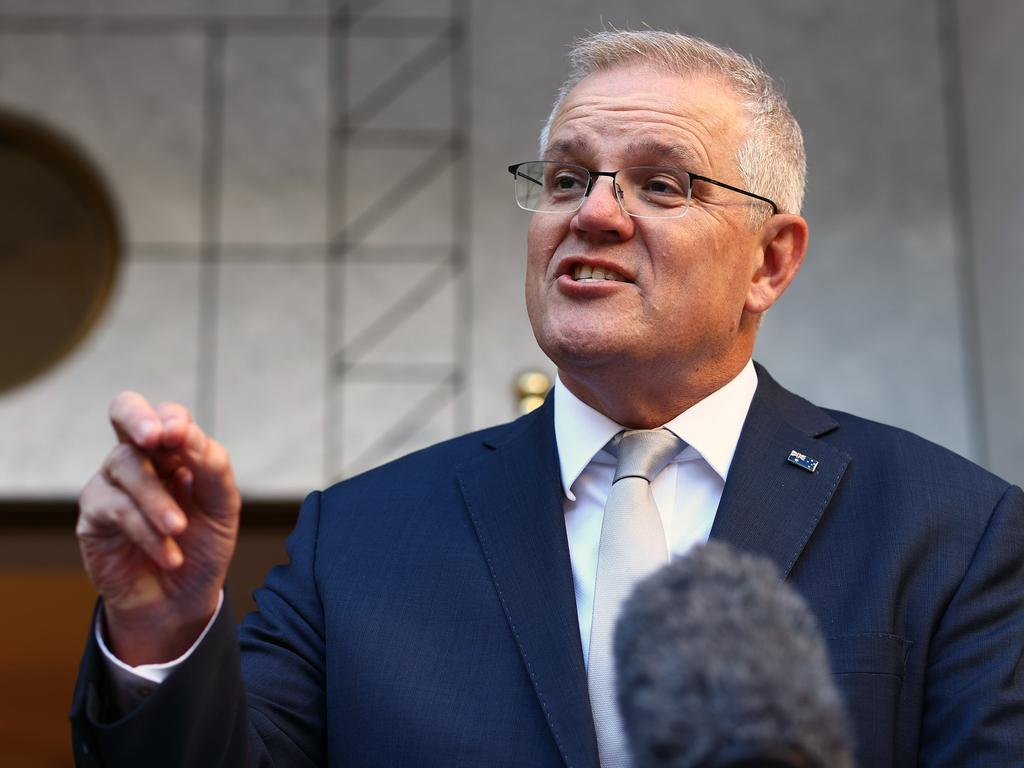
Australia will not get the comprehensive climate flogging some activists have predicted at Mr Biden’s summit, a leading analyst of the US/Australian alliance has suggested.
The virtual summit of 40 world leaders taking place on Thursday and Friday has already generated policy momentum, with Washington and Beijing committing to work together on climate issues, and Canada announcing it will cut CO2 emissions by 36 per cent from 2005 levels by 2030.
The US, Japan and South Korea are all poised to announce ambitious new emissions targets for 2030 during the summit, which could be as high as 50 per cent.
Professor Simon Jackman from the United States Studies Centre said the Biden summit would be primarily “scene setting before Glasgow”, with the aim of “nudging countries toward tangible goals”.
“You don’t invite people and wag a finger at them,” he said.
And despite frequent references to Australia being a “climate laggard”, Canberra “has a reasonably strong set of talking points”, Prof Chapman said, noting that unlike the US, we never left the Paris Agreement.

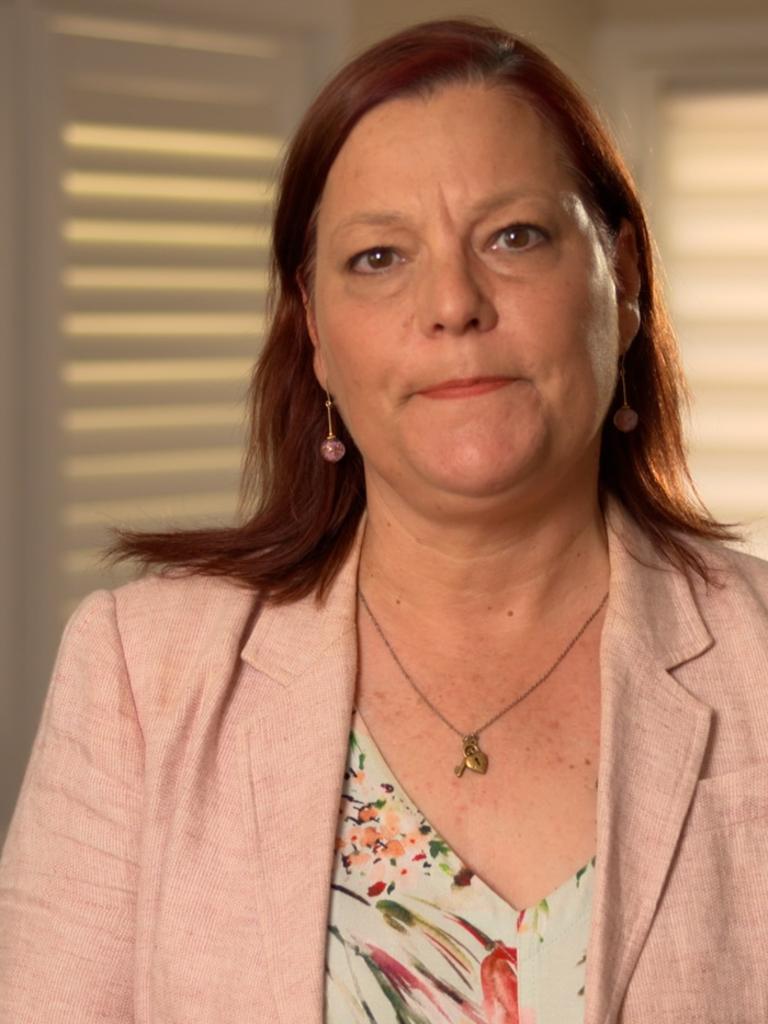
The Morrison government’s “technology not taxes” approach to tackling climate was not dissimilar to the Biden administration’s, Prof Chapman said.
“It’s really hard to see a carbon tax getting up in the US Congress,” he said.
According to Prof Chapman, Washington has developed a good understanding of the peculiar complexities of the climate debate down under, with former ambassador Arthur Culvahouse calling it “the third rail of Australian politics”.
The “third rail” – a metaphor often ascribed to social security in US politics – refers to the electrified rail in the New York subway, which brings instant death to all who touch it.
“The State Department also well remembers how upset the Australians were during the G20 summit in Brisbane. Obama’s speech at the University of Queensland blindsided the Australians on climate,” Prof Champan said.
“Getting Australia off-side on climate is really counter productive to some of the bigger issues,” he said.
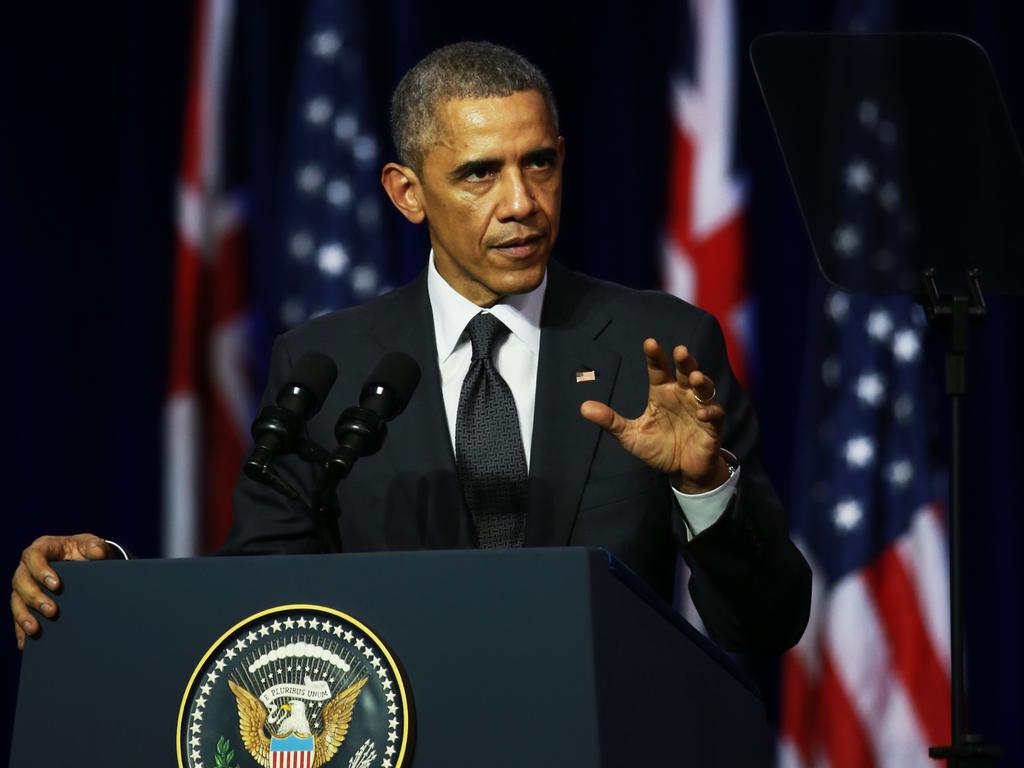
While the Biden summit includes leaders of several developing nations, no Pacific countries other than New Zealand have been invited, and their absence “may make (the summit) a little easier for Australia,” Prof Chapman said.
Their omission pushes focus away from the effects of climate change and toward its causes, and was justifiable, Prof Chapman suggested, because “it’s really the emitters you want to extract commitments from”.
“There will be plenty of opportunity for smaller nations to have their say at Glasgow,” he said.
Pressure on Australia may come from European nations, particularly if carbon tariffs are raised, Climate Council economics expert Nicki Hutley said.
“It’s not something that’s been flagged, but given the Europeans will be there and this is something that’s clearly on their agenda … I’d be surprised if it was not part of the conversation,” she said.
The Europeans are “definitely going ahead” with carbon tariffs, the US is looking at the issue and Australian protestations that it was a new form of protectionism were likely to carry little weight, Ms Hutley said.
There will be enormous pressure on Australia to up its climate commitments, she said.
“We want to have a voice and a role in other areas and if we don’t play ball on climate change that will reduce our ability to have a voice on a whole host of other issues where we want our voice to be important,” Ms Hutley said.
BIDEN’S CLIMATE SUMMIT: WHAT YOU NEED TO KNOW
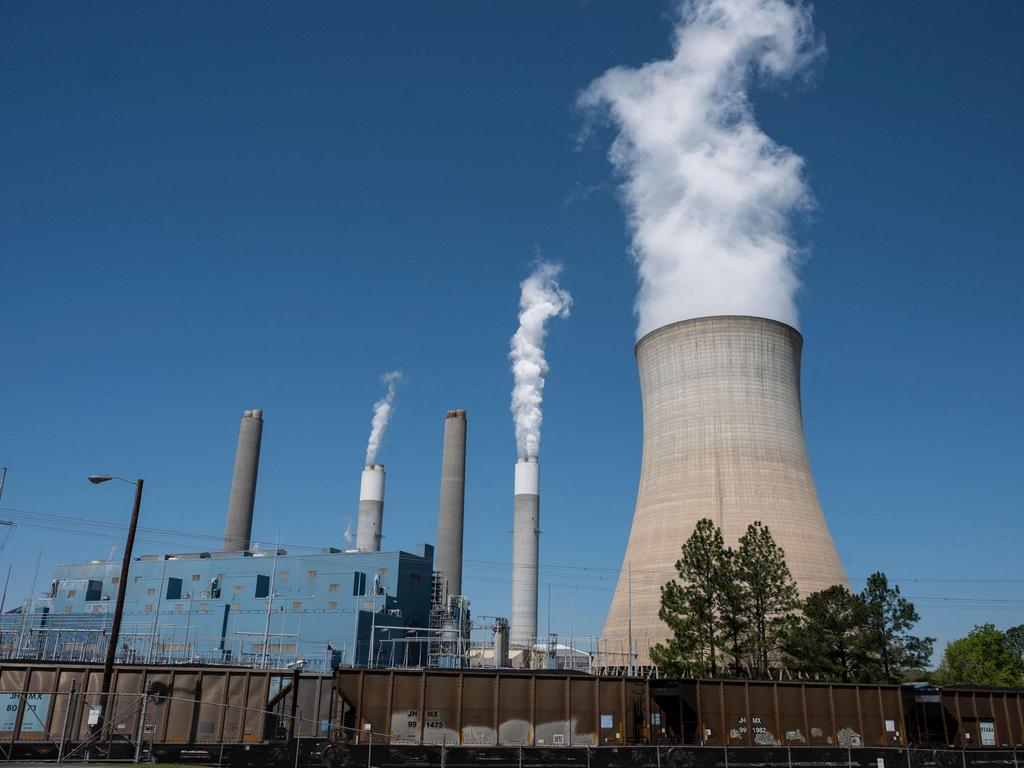
WHEN IS IT ALL HAPPENING?
The summit takes place on Thursday and Friday, 8am – 1pm US Eastern Standard Time, which is 10pm – 3am Australian EST.
WHICH LEADERS HAVE BEEN INVITED?
US President Joe Biden invited the heads of 40 countries, including all the big powers and big emitters, including China, Russia, UK, Japan, India and the European Union. While the leaders of Pacific island nations have not been invited, regional powers including Indonesia, South Korea, Singapore and New Zealand will all be represented.
WHAT DOES BIDEN WANT TO ACHIEVE?
According to Professor Simon Jackman from the United States Studies Centre, Biden “wants to project an image that America is back taking climate change seriously – and not just back, but leading a coalition of the world’s largest economies”.
Biden also has a “very narrow window” for action while the Democrats retain control of both houses of Congress, Prof Chapman said.
“He’s got the ability to move, but it disappears very quickly,” he said.
WHAT WILL BIDEN ANNOUNCE?
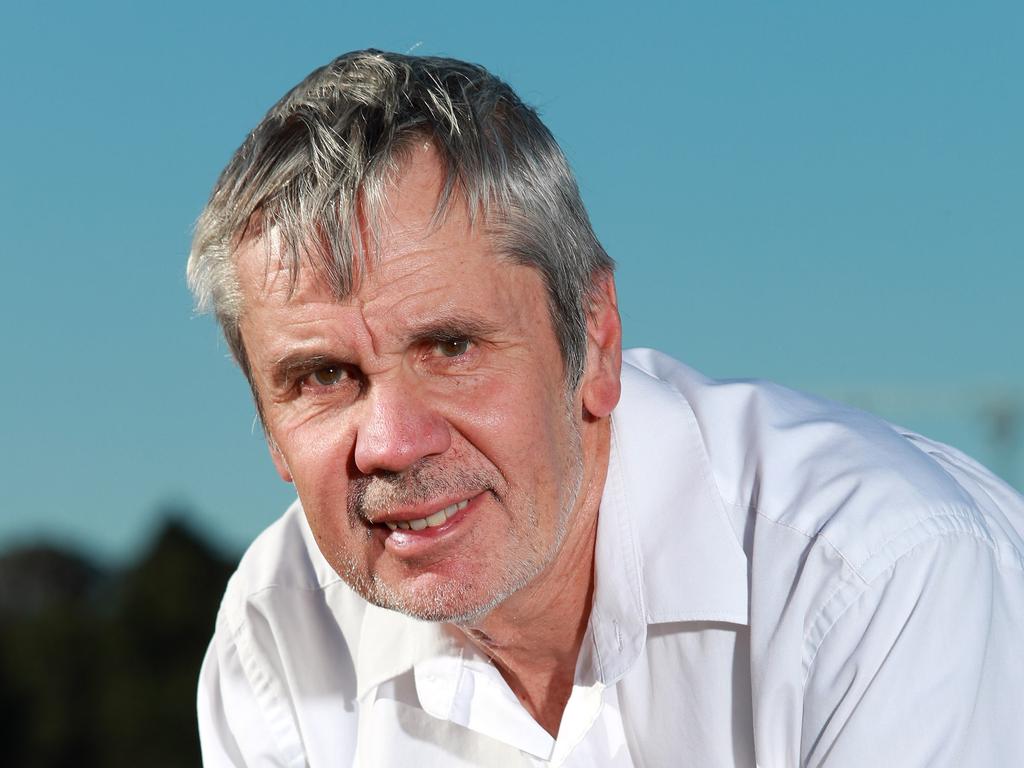
The White House said Mr Biden would announce an “ambitious 2030 emissions target” by the time of the summit, prompting speculation as to how ambitious it will actually be.
Carbon Market Institute CEO John Connor said there was “considerable pressure” for Biden to announce a 50 per cent target for 2030.
“Whether they will go that far, I don’t know, but it will be more than the 26-28 per cent by 2030 that Australia has on the table,” he said.
Professor Will Steffen from the ANU Climate Change Institute said he would “be surprised” if Biden’s target was “any weaker than 40 per cent”.
Previously, the US had a goal of reducing emissions by 26-28 per cent by 2025, but former President Donald Trump nullified that goal when he withdrew the US from the Paris Agreement. Biden announced the US would rejoin the Paris Agreement on his first day in office.
WILL AUSTRALIA ANNOUNCE NEW GOALS?
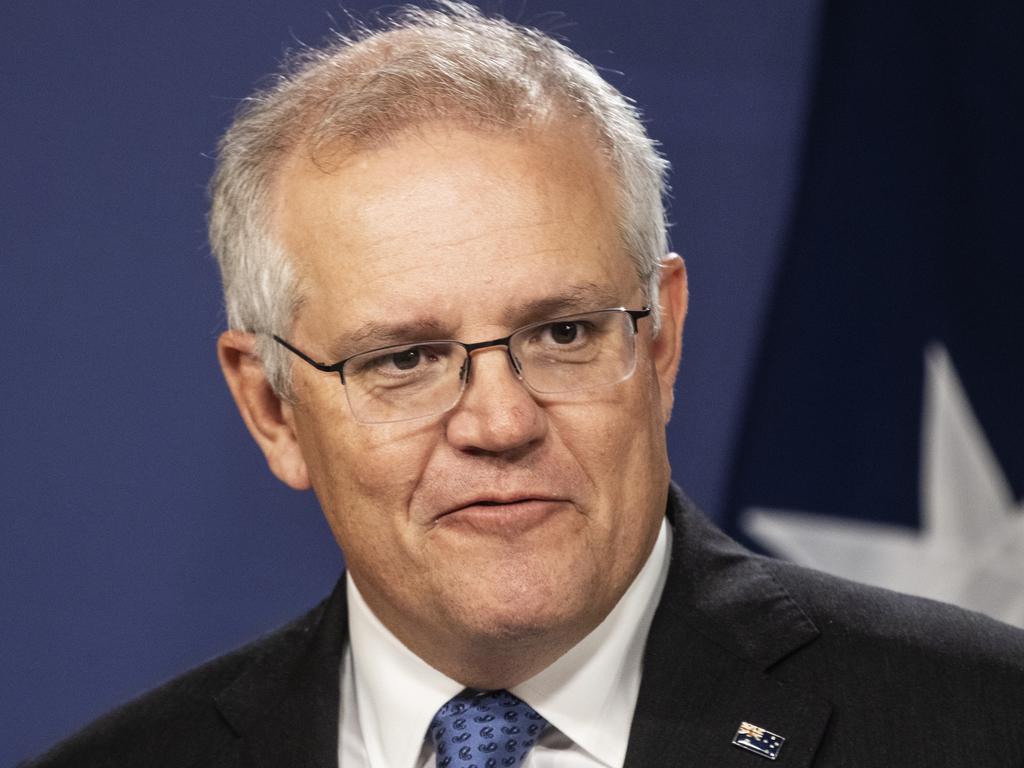
Mr Morrison is not expected to announce a new emissions target as part of the summit.
Under the Paris Agreement, Australia has pledged to cut emissions by between 26-28 per cent from 2005 levels by 2030.
A government spokesperson told News Corp that Australia “is already committed to achieving net zero emissions”.
“Our goal is to do that as soon as possible, and preferably by 2050.”
The spokesperson said Australia’s track record “is one of reducing emissions faster than our developed country peers”.
“Between 2005 and 2018, Australia’s emissions fell faster than Canada, New Zealand, Japan, Korea or the United States. Over that same period, half of G20 members actually increased their emissions.”
According to the latest figures from the National Greenhouse Gas Inventory, Australia’s emissions are currently 19.0 per cent below 2005 levels.
Labor has committed to net zero emissions by 2050 but a policy it took to the 2019 federal election, calling for a 45 per cent cut in emissions by 2030 has been shelved.
Speaking to an online forum convened by the Australian Institute last week, the party’s Climate Change and Energy Spokeserson Chris Bowen gave an insight into how Labor would be approaching the issue going forward, saying he would present “a jobs and economic policy that deals with climate change”.
Mr Bowen didn’t discuss interim targets, but said “You can’t have net zero in 2050 without a strong road map, and you can’t start that in 2048“.
“We need to start now,” he said. “The best time to start action on climate change was 30 years ago; the second best time is today.”
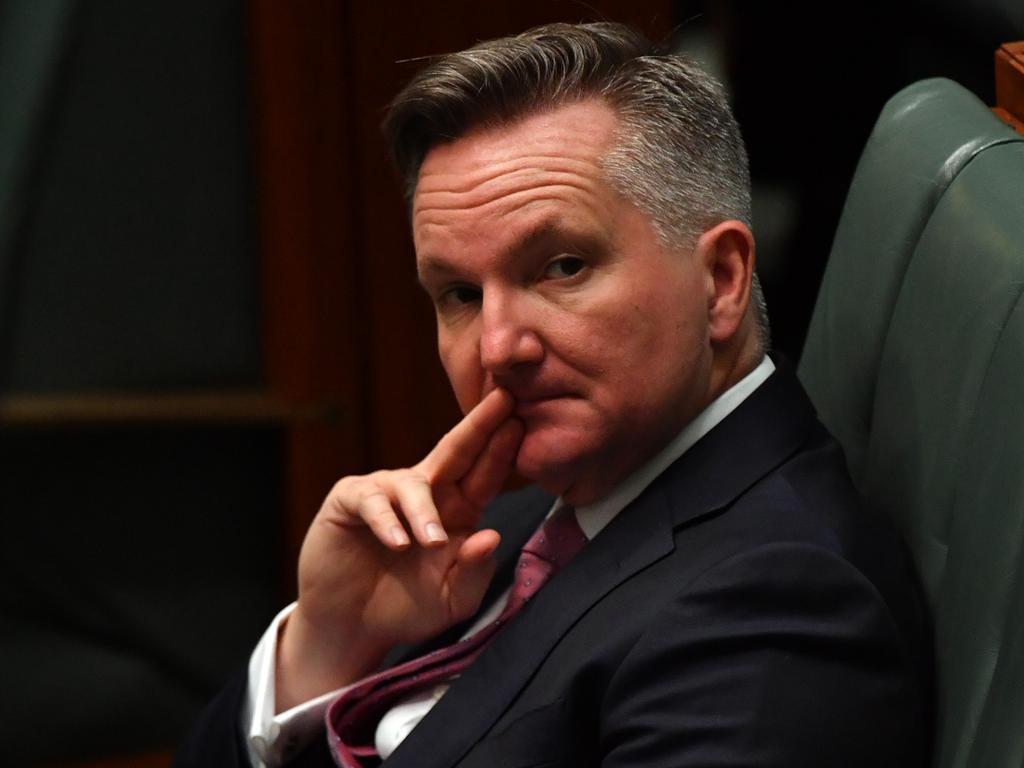
WHAT ARE OTHER COUNTRIES DOING?
Most of Australia’s trading partners have now committed to a net zero emissions goal by 2050, including the US, UK, Japan, South Korea and the European Union.
Increasingly, attention is turning towards what targets countries will set for themselves for the year 2030.
Last week Canada announced it would try to cut its greenhouse gas emissions by 36 per cent by 2030, and there is speculation that Japan will announce an even more ambitious goal – possibly as much as 45 per cent.
Expect more announcements from other countries at the Biden summit.
WHAT ABOUT CHINA?
Last year China announced a net zero goal for 2060 – but according to leading economist Nicki Hutley, that policy may have included some built-in wiggle room, giving Beijing a ‘win’, should they subsequently decide to bring that goal forward by a decade, in line with other nations.
“As the world’s largest emitter they need to act as fast as they can, and they probably have more control to invest in renewables and green initiatives because of the way the government system works,” Ms Hutley said. “They invest billions in infrastructure and they have more flexibility that many other countries to lift their game faster.”
Prof Chapman stressed the importance of China being part of all discussions about global emissions.
“China has to be part of the picture,” he said. “Where China goes, so too does the planet on climate.”
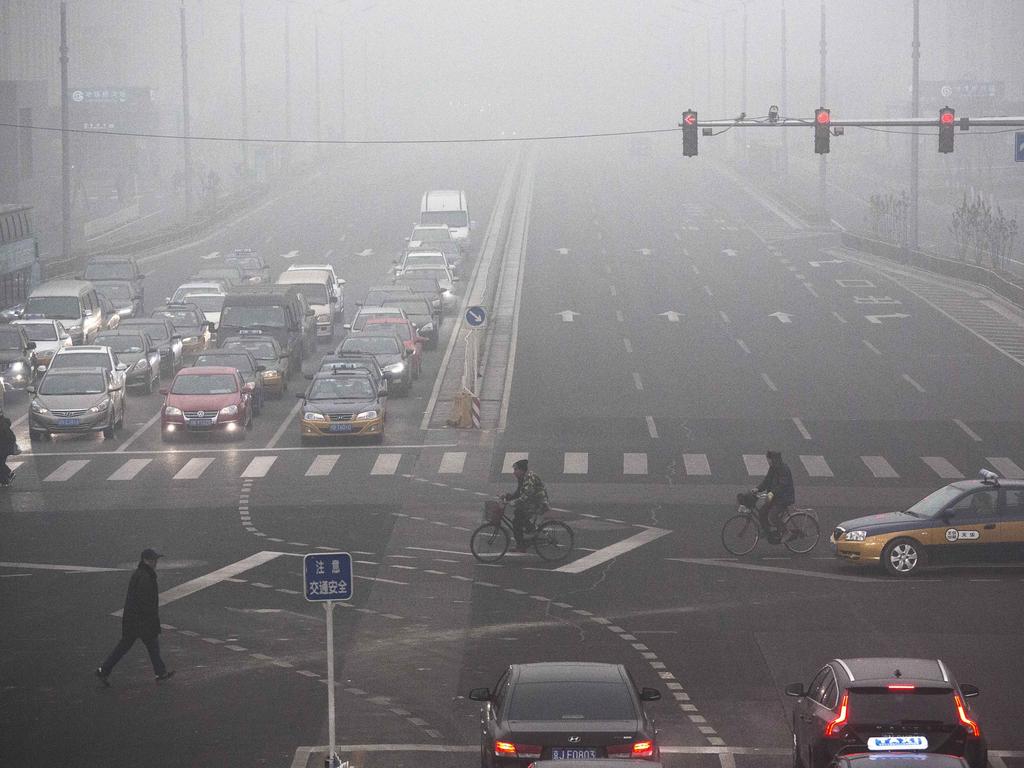
WHY ARE EMISSIONS IMPORTANT?
The planet is warming because of the rising level of greenhouse gases in the atmosphere. Most recent research suggests the land has warmed an average of 1.1 degrees above pre-industrial levels, and the Earth’s oceans are warming at an even faster rate. Scientists predict this warming will continue for some time to come, and the Paris Agreement seeks to limit that warming to between 1.5 and 2 degrees of warming.
Recently, a report from the Australian Academy of Science (AAS) warned the possibility of holding temperature increases to 2 degrees was waning, and a planet that was three degrees warmer was “increasingly likely”. A three-degree warmer would is one that would see massive losses in biodiversity, extreme climatic conditions and the virtual destruction of Australia’s Great Barrier Reef, the AAS report stated.
WHAT WILL BE DISCUSSED AT THE SUMMIT?
The summit will include a plenary session focused on ambition-raising announcements from leaders, as well as major sessions devoted to technologies that will enable countries to meet their emissions targets, and how they can be financed. Another session will explore the jobs opportunities arising from the transition to lower-emission energy sources.
WHAT COMES NEXT?
Expect climate change and emissions to be front and centre during all international forums this year, including the G7 meeting in June, to which Australia has been invited as a guest, and the G20 meeting in October.
The UN Climate Change Conference will take place in Glasgow, Scotland, between November 1 and 12.
Originally published as World leaders pledge climate co-operation despite rifts




